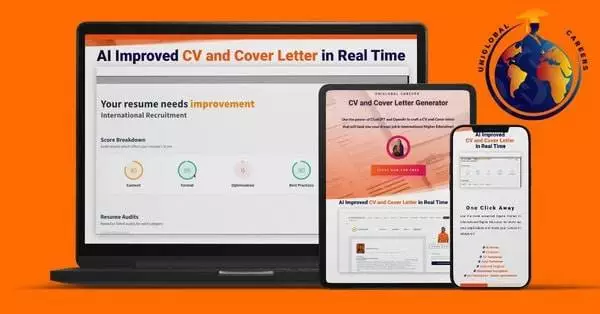In today’s globalized world, international education has become increasingly important. As a result, the demand for professionals in the field of global engagement has also grown. If you are preparing for a job interview in international education, it is essential to familiarize yourself with the most common interview questions that you may encounter. This article will provide you with a comprehensive guide to help you ace your interview and secure a job in global engagement.
Understanding the Role of Global Engagement in International Education
Before diving into the interview questions, it is crucial to have a clear understanding of the role global engagement plays in the field of international education. Global engagement professionals are responsible for developing and maintaining relationships with international partners, coordinating study abroad programs, promoting cultural exchange, and fostering global awareness within educational institutions.
In a rapidly evolving world, global engagement serves as the bridge between educational institutions and the global community. Through their work, professionals in this field play a vital role in shaping the international education landscape and preparing students to thrive in a global society.
Global engagement is not just a buzzword; it is a fundamental aspect of modern education. By actively engaging with the global community, educational institutions can expose their students to diverse perspectives, cultures, and academic opportunities. This exposure enhances the overall educational experience and equips students with the skills necessary to succeed in an interconnected world.
Furthermore, global engagement initiatives benefit institutions by fostering cross-cultural collaborations, attracting international students, and expanding research opportunities. These initiatives not only contribute to the institution’s reputation but also enhance its standing in the international education arena. By actively participating in global engagement, educational institutions demonstrate their commitment to providing a comprehensive and globally-focused education.
The Importance of Global Engagement
Global engagement is essential for educational institutions as it allows them to expose students to diverse perspectives, cultures, and academic opportunities. By embracing global engagement, institutions can enhance the overall educational experience and equip students with the skills necessary to succeed in an interconnected world.
Engaging with the global community also benefits institutions by fostering cross-cultural collaborations, attracting international students, and expanding research opportunities. Furthermore, global engagement initiatives contribute to the institution’s reputation and standing in the international education arena.
Global engagement is not just a one-way street. It is a mutually beneficial relationship where both the institution and its students gain valuable experiences and knowledge. Through global engagement, students have the opportunity to broaden their horizons, challenge their preconceived notions, and develop a global mindset. This exposure to different cultures and perspectives prepares them to navigate the complexities of our interconnected world.
Key Responsibilities in a Global Engagement Role
As a global engagement professional, you will have a range of responsibilities to fulfill. These may include:
- Developing and managing international partnerships: Building strong relationships with international institutions is crucial for fostering collaboration and creating study abroad opportunities for students.
- Organizing and overseeing study abroad programs: Coordinating study abroad programs involves managing logistics, ensuring student safety, and facilitating cultural immersion experiences.
- Facilitating cross-cultural communication and understanding: Global engagement professionals play a vital role in promoting effective communication between students from different cultural backgrounds, fostering understanding and empathy.
- Promoting and coordinating student exchange programs: Student exchange programs provide opportunities for students to experience different educational systems and cultures, broadening their perspectives.
- Maintaining compliance with relevant regulations and policies: Global engagement professionals must stay up-to-date with international education regulations and policies to ensure compliance and provide accurate guidance to students and faculty.
- Providing support and guidance to international students: Assisting international students with their transition to a new educational and cultural environment is a critical responsibility of global engagement professionals.
- Collaborating with faculty and staff to internationalize the curriculum: Working closely with faculty and staff, global engagement professionals help infuse international perspectives and content into the curriculum, creating a more globally-focused educational experience.
- Planning and executing cultural events and activities: Organizing cultural events and activities on campus promotes cultural exchange, raises awareness, and celebrates diversity within the educational community.
Preparing for Your International Education Interview
Now that you have a solid understanding of the role of global engagement in international education, it’s time to prepare for your interview. This section will guide you through the essential steps to ensure a successful interview experience.

Researching the Institution
Before your interview, take the time to thoroughly research the institution you are applying to. Familiarize yourself with its mission, values, programs, and recent initiatives. This research will not only demonstrate your genuine interest in the institution but also enable you to ask relevant questions during the interview.
Additionally, gather information about the institution’s international programs, partnerships, and any recent global engagement initiatives. Understanding the institution’s international footprint will showcase your knowledge and commitment to global engagement.
Understanding the Job Description
Another crucial step in your interview preparation is thoroughly reviewing the job description. Pay attention to the specific skills, qualifications, and experiences required for the position. Take note of keywords or phrases used in the description, as these are often indicators of what the hiring committee is seeking in a candidate.
By understanding the job description, you can tailor your responses during the interview to align with the position’s requirements. Be prepared to provide concrete examples from your past experiences that demonstrate your suitability for the role.
Most Common Interview Questions for a Job in Global Engagement
Now that you have laid the groundwork for your interview, let’s explore some of the most common interview questions you may encounter when applying for a job in global engagement. These questions are designed to assess your knowledge, experience, and skills in the field.
Questions About Your Experience
1. Can you tell us about your previous experience working in international education?
2. What challenges have you faced when managing international partnerships, and how did you overcome them?
3. Share an example of a successful study abroad program that you have coordinated.
4. How have you contributed to creating a more inclusive and diverse environment in your previous role?
Questions About Your Skills
1. What skills do you possess that make you an effective global engagement professional?
2. How do you stay up-to-date with current trends and best practices in international education?
3. Describe a time when you had to adapt your communication style to work effectively with individuals from different cultural backgrounds.
4. How do you handle cultural or linguistic barriers in your work?
Scenario-Based Questions
1. Imagine a student is experiencing culture shock while participating in a study abroad program. How would you support them?
2. How would you handle a conflict between international students and domestic students in a classroom setting?
3. You need to secure funding for a new international partnership. How would you go about this process?
4. What strategies would you use to promote cultural exchange among students on campus?
Tips to Answer International Education Interview Questions
Now that you are familiar with some of the common interview questions, let’s explore some tips to help you answer them effectively.

Showcasing Your Knowledge about International Education
When addressing questions about your knowledge of the field, be sure to draw on your previous experiences, academic background, and ongoing professional development. Highlight any notable achievements, research, or initiatives that you have been involved in that demonstrate your deep understanding of international education.
Additionally, use specific examples to illustrate your knowledge and provide concrete evidence of your expertise. This will showcase your credibility and competence in the field.
Demonstrating Your Skills in Global Engagement
When discussing your skills, focus on those that are directly relevant to global engagement. These may include intercultural communication, program coordination, relationship building, leadership, and problem-solving abilities. Provide examples from your past experiences that highlight these skills in action.
Furthermore, emphasize your ability to collaborate effectively with diverse stakeholders such as students, faculty, staff, and community partners. Strong interpersonal skills are essential in the field of global engagement.
Post-Interview Follow-Up
Once you have successfully completed your interview, don’t forget to follow up appropriately. This section will provide you with guidance on the post-interview process.
Thank You Notes and Emails
Sending a thank-you note or email to the interviewers is a professional courtesy that can leave a lasting positive impression. Use this opportunity to express your appreciation for the interview and reiterate your interest in the position.
Keep the thank-you message concise, personalized, and genuine. Highlight specific aspects of the interview or conversation that stood out to you, and remind the interviewers of your qualifications and fit for the role.
Next Steps After the Interview
After the interview, it’s important to stay engaged in the process. Follow any instructions provided by the institution regarding next steps or additional documents they may require. Maintain open communication with the hiring committee and be responsive to any requests for further information.
While waiting for a decision, continue exploring other opportunities, but refrain from applying for similar positions within the same institution. Instead, focus on nurturing your professional network and seeking feedback to further refine your interview skills.
In conclusion, acing a job interview in global engagement requires a combination of understanding the role, thorough preparation, and effective communication. By researching the institution, familiarizing yourself with the job description, and practicing your responses to common interview questions, you can confidently navigate the interview process. Remember to showcase your knowledge and skills, and demonstrate your passion for contributing to the field of international education. Good luck!


